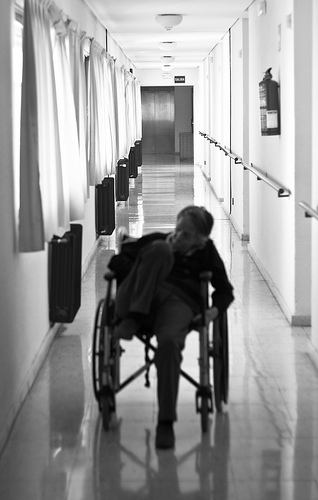Antidepressant Can Help Alzheimer's Patients, But at a Cost

A drug commonly prescribed as an antidepressant has been shown to also ease agitation in people with Alzheimer's disease, according to a recent study out from Johns Hopkins Hospital.
Alzheimer's disease is known to occasionally cause moments of intense fear and agitation in its victims, who are slowly losing their ability to recall things moment to moment and are slipping into dementia. Progression of the disease is theorized to cause significant stress for its victims, who feel they are losing control of their memories and mind.
Moments of frenzied agitation can be one of the worst symptoms of Alzheimer's for both patients and caregivers. According to the study, "agitation" refers to moments of emotion distress, excessive psychomotor activity -- such as thrashing, unprovoked aggression, and disruptive irritability. Naturally, instances of agitation can upset families and make things significantly harder for caregivers.
According to the study's research team, common treatment options for agitation, such as antipsychotics, "are not satisfactory."
Instead, the research team set out to determine if antidepressants could be a viable option in treating and preventing moments of agitation in patients with Alzheimer's disease.
In the study, 186 patients with Alzheimer's disease have received standardized psychological intervention treatment. Half that group was also given regular doses of citalopram, commonly used as the antidepressant Celexa, while the other half was given a placebo. The caregivers for these patients were also included in the test, where they reported their stress levels regularly.
At the end of the study, researchers found that inclusion of the antidepressant drug in standardized treatment for agitation significantly reduced the intensity and frequency of an episode. The caregivers of the non-placebo patients also showed a substantial decline in stress levels.
Unfortunately, the researchers also found that in some rare cases, the drug had the inverse effect, making some patients' episodes of agitation worse. It was also discovered that the drug commonly had an adverse effect on the cardiac helath of a patient.
With these results, the researchers concluded that the drug citalopram did indeed help treat agitation in Alzheimer's patients. Still, due to the adverse effects found associated with administration of the drug, the researchers explain that practical applications of the treatment could be very limited.
The study was published in the Journal of the American Medical Association on February 19.
© MD News Daily.
